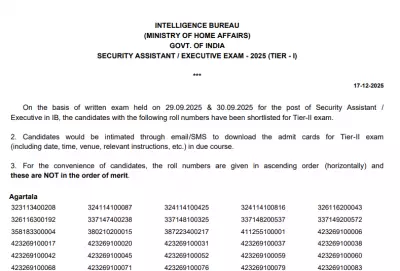
In an era where artificial intelligence is transforming everything from homework to high-stakes careers, Indian universities are facing a pressing question: Should working with AI become as fundamental as writing essays or conducting research?
The debate is intensifying across academic circles as educators recognize that AI proficiency is no longer optional—it's essential. But it's not just about technical skills; the heart of the matter lies in ethical implementation.
The Digital Literacy Imperative
Imagine graduating into a job market where AI tools are standard workplace equipment, yet having no formal training in their ethical use. This is the reality facing today's students unless universities act swiftly.
Proponents argue that digital ethics courses should cover:
- Understanding AI bias and algorithmic fairness
- Data privacy and protection principles
- Responsible AI development and deployment
- Critical thinking about AI-generated content
- Legal and social implications of AI technologies
Beyond Technical Skills: The Ethical Dimension
While coding and technical AI knowledge remain valuable, the ethical component represents the missing piece in many current curricula. Students need to understand not just how AI works, but how to work with AI responsibly.
The gap is particularly concerning as AI tools become more accessible. Without proper guidance, students might inadvertently:
- Violate academic integrity through improper AI use
- Perpetuate biases present in training data
- Compromise sensitive information through AI platforms
- Misunderstand the limitations of AI-generated content
The Global Context: India's Opportunity
As nations worldwide grapple with AI education standards, Indian universities have a unique opportunity to lead. By integrating comprehensive digital ethics programs, institutions can produce graduates who are not just AI-literate but AI-responsible.
This approach aligns with India's growing prominence in the global technology landscape, ensuring that the next generation of professionals can navigate AI challenges with both competence and conscience.
The conversation is no longer about whether AI belongs in education, but how we can prepare students to use it wisely, ethically, and effectively. The time for digital ethics curriculum is now—before the technology outpaces our understanding of its proper use.





